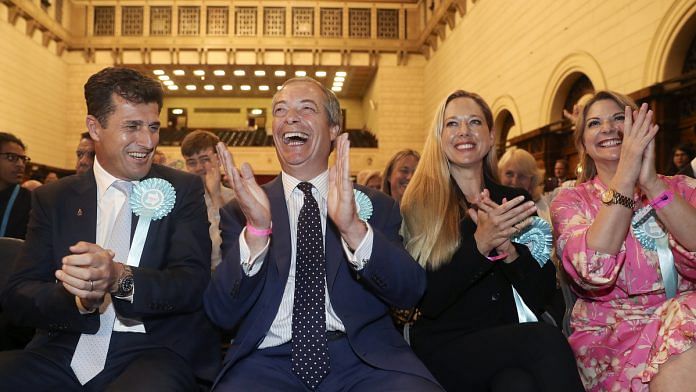Far-right, nationalist parties gain significantly
The election to the European Parliament (EP) ended over the weekend, and the results threw up a fragmented legislature. The EP is the only European Union (EU) body that is directly elected and acts as its legislature. The EP elections are the largest instance of transnational democracy in the world.
In terms of results, the far-right and nationalist parties managed to have some significant gains, but failed to meet the pre-poll expectations. The traditional centre-left and centre-right parties lost a reasonable amount of their seat share, and for the first time in four decades, the two blocs lost their combined majority at the EP. The losses from these blocs have gone to the liberals and Greens.
Impressive performance of Green parties
The surge in seats share of Greens came predominantly from their impressive performance in Germany, where they finished second after the centrist Christian Democrats. On average, Greens did well across all EU member countries.
Eurosceptic Members of European Parliament (MEP) also performed well, but they failed to meet the pre-poll hype. The Eurosceptic MEPs make up about a quarter of the total EP. The populists, on the other hand, failed to substantially expand their seat shares.
In the UK, Nigel Farage’s new Eurosceptic party emerged as the single largest player with 31 seats. Farage’s party managed to defeat both the Labour and Conservative parties.
The far-right parties, however, managed to make substantial gains in both France and Italy. Their effects in the EU might be limited, but their new-found influence might rattle the establishment in the respective countries.
In France, Marine Le Pen, the leader of far-right National Front, made substantial gains, dealing a blow to French President Emmanuel Macron. In Italy, Matteo Salvini’s far-right party emerged as the winner.
Meanwhile, in Hungary and Poland, the ruling parties Fidesz, and Law and Justice, respectively, who have been criticised for their authoritarian tendencies, held their ground.
The centre-right and centre-left parties have also managed to hold their ground to some degree, but they incurred substantial losses too. The loss of their combined majority would mean they would have to work closely with the liberals, Greens and other pro-EU parties.
Unlike traditional parliaments, there is no government formation that takes place at the EP and instead all work is done by issue-by-issue majority formation.
Uncertainty over next European Commission president
Over the past few years, a new norm has emerged in the EU — the ‘lead candidate’. According to the norm, all the major blocs appoint their lead candidates during the EP elections and the winning lead candidate goes on to become the President of the European Commission (EC), which is arguably the EU’s most powerful body. This norm is, however, is deeply controversial.
Given the losses suffered by the traditional centre-left and centre-right blocs, the appointment of the EC president is likely to become more controversial.
A report by Financial Times suggests Germany Chancellor Angela Merkel and French President Macron are already getting into a tussle regarding the appointment of the next EC president.



